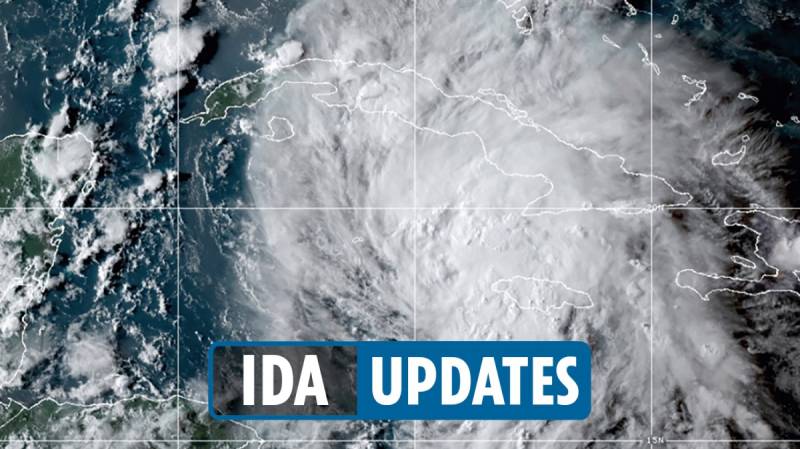Tropical Storm Ida strengthens as it heads toward US

Stay tuned with 24 News HD Android App

Tropical storm Ida was churning through the Caribbean toward the US Gulf Coast Friday and could hit the southern United States as a major hurricane, forecasters said.
As of Friday morning, Ida was steaming northwest with maximum winds of 60 miles per hour (95 kph) through the Caribbean, where the National Hurricane Center said "life-threatening heavy rains, flash flooding and mudslides" were expected to hit western Cuba, Jamaica and the Cayman Islands during the day.
The storm gathered strength as it approached Cuba, with the government upping a tropical storm warning to a hurricane warning for the Isle of Youth and several provinces in the west of the island.
In its latest bulletin, the NHC said Ida was expected to be a hurricane when it neared Cuba later Friday, and "a dangerous major hurricane when it reaches the northern Gulf Coast on Sunday."
A Hurricane watch is in effect in New Orleans -- which was devastated by Hurricane Katrina in 2005 -- with "an increasing risk of dangerous hurricane-force winds beginning Sunday along the portions of the coasts of Louisiana and Mississippi," the NHC said.
"Potentially devastating wind damage could occur where the core of Ida moves onshore," it added, noting it is likely to produce heavy rainfall and "considerable" flooding from southeast Louisiana to coastal Mississippi and Alabama.
US atmospheric scientist Matthew Cappucci tweeted that "at this point it's reasonable for coastal Louisiana to prepare for the potential of Category 4+ impacts." That level is the second-highest on the Saffir-Simpson hurricane wind scale.
"A major hurricane is basically a lock. And, given there aren't many 'outs' for this storm to fail, it's tough to not see it overachieving."
Last week, a rare tropical storm struck the US northeastern seaboard, knocking out power to thousands of Americans, uprooting trees, and bringing record rainfall.
Scientists have warned of an rise in the number of powerful cyclones as the ocean surface warms due to climate change, posing an increasing threat to the world's coastal communities.
Louisiana is frequently hit by major storms. New Orleans remains traumatized from Katrina in 2005, which flooded 80 percent of the city and killed more than 1,800 people.
